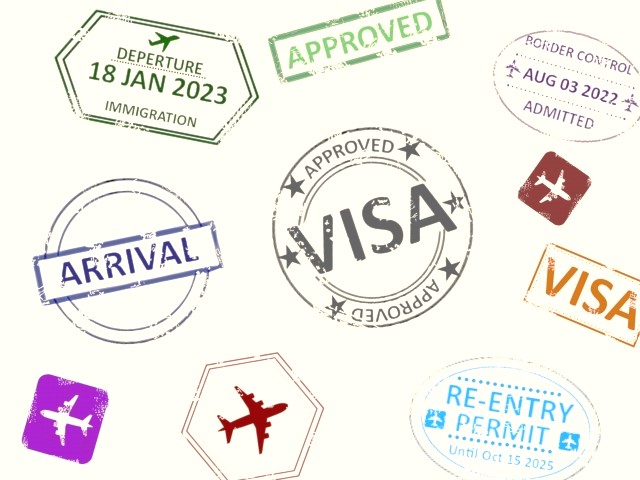News
2025.02.21
Columns
Business Trip to China – Random Thoughts

We, Imoto Sangyo Ltd. visit many overseas exhibitions and manufacturers throughout the year. By selecting products directly on-site and asking questions to the manufacturer’s representatives, we can conduct quick and safe transactions. In this article, an employee with extensive experience on business trips to China has written a column about the various things and common things that happen when traveling to China.
Contents
1. Introduction
2. Visa
3. Hotels
4. Transportations
_4.1 Airplane
_4.2 Train
_4.3 Taxi
5. Conclusion
Introduction
It’s been more than 25 years since I started going to China. If I use a common phrase, it feels like it’s been both long and short. What would happen if I started writing down rambling whatever came to mind?
Visa
As I mentioned at the beginning, I started going to China more than 25 years ago. I go there about 7 to 8 times a year, and each business trip lasts about 7 to 10 days. I had been continuing this pattern without interruption, and then suddenly the COVID-19 pandemic hit. I couldn’t go for three whole years, and it really messed me up. I thought I’d finally be able to go in the spring of 2023, but I found out I needed a visa, and the documents required for that visa application were so troublesome that I really thought about giving up on going. Moreover, I was limited to two trips, which meant that if I went on two business trips, the visa would be invalid and I had to apply for a new (troublesome) visa for my next business trip. I couldn’t predict how many days it would take from application to acquisition, and I didn’t really know when to issue the plane ticket, and since I was mostly traveling with customers, I couldn’t afford to miss the deadline, so I was constantly on edge. Arrival visas, transit visas, and other legitimate visas that were like secret tricks appeared, and I listened to the stories of people with experience and tried them myself, but in the fall of 2024, I was able to apply for a multi-visa (allowing multiple trips), and shortly thereafter, on November 30th, Japan also implemented visa exemptions, and I was finally free from that work. The one-and-a-half-year visa era was long, indeed.
Hotels
When you go on business trips many times, you naturally end up with a so-called “familior hotel.” For example, this is the place in Shanghai, and this is the place in Guangzhou. There are many reasons for this, such as being close to a manufacturer, having a Japanese-style izakaya right in front of the hotel, or good value for money. If you go there several times a year, you become familiar with the hotel staff. I don’t speak Chinese, so we don’t have any small talk, and we don’t get closer, but sometimes they prepare a slightly better room than usual. Even so, there are three or four stars proudly displayed on the wall at the front desk, but I wonder which organization sets these and what standards they use.
Transportations
Airlane
Delayed. Delayed by hours. Sometimes it doesn’t even take off. There were two or three times when flights back to Japan were delayed so much that they were eventually canceled. When I first went to China, I used to get angry and sad when something like this happened, but these days I don’t feel anything. When a flight is canceled, the airline makes all passengers board a bus, takes them to an unfamiliar hotel, and places them in a room with two passengers. They are usually woken up very early the next morning, and then everyone is put back on the bus again. They are given a snack set on the bus, and eat it while half asleep. I don’t think anything of it anymore.
Train
Cheap. Too cheap. The high-speed rail and subway are also very cheap. The interior is clean and the ride is very comfortable. The distance between Shanghai Hongqiao railway station and Hangzhou East railway station on the high-speed rail is about 160 km, and the fare for a first-class seat is just under JPY2,500 (in Japanese yen). For example, the distance between Nagoya Station and Kyoto Station is about 150 km, and a Nozomi unreserved seat costs just over JPY5,000. In other words, it’s less than half the price. The subway is even cheaper. The base fare is about JPY60 in Shanghai. Even if you ride from Shanghai Pudong Airport to the city center for over an hour, it’s only about JPY150. I still feel quietly surprised when I buy a ticket from the ticket machine.
Taxi
Rough. The driving is rough. They are in a hurry even though I don’t ask for it. It’s normal to find the driver’s personal belongings in the trunk when you open it. As a result, some of my luggage won’t fit and it takes an hour to get to the hotel with the back seat cramped. If you’re unlucky, you may end up in a vehicle that smells really bad. It must be because of mandarin orange peels, peanut shells, a brown-stained rag, or even just a single disposable chopstick. It’s exactly at times like these that the highway gets jammed. I’ve also been a victim of counterfeit bills. When I paid the driver CNY300 for the fare, he gave me back one of the CNY100 bills, saying that it was a counterfeit. But this CNY100 bill wasn’t the one I paid, it was a counterfeit bill that the driver had prepared beforehand. I went along with this poor magic trick one more time, and I ended up with two fake CNY 100 bills. I’m annoyed, so I’m keeping them as a souvenir. By the way, when I first went to China, the driver’s seat was surrounded by a thick lattice. I thought it was dangerous, but it disappeared before I knew it. It just means that the security situation has improved.
Conclusion
I feel relieved when I go to China. I don’t think it’s just because I’m used to going there. I may know what it is, but I don’t know. But still, how many more years and how many times will I go?
Imoto Sangyo Ltd. handle a wide variety of kitchenware, tableware, and daily necessities.
For more information, please see the “Goods and Cases” page.
Category
Archive

